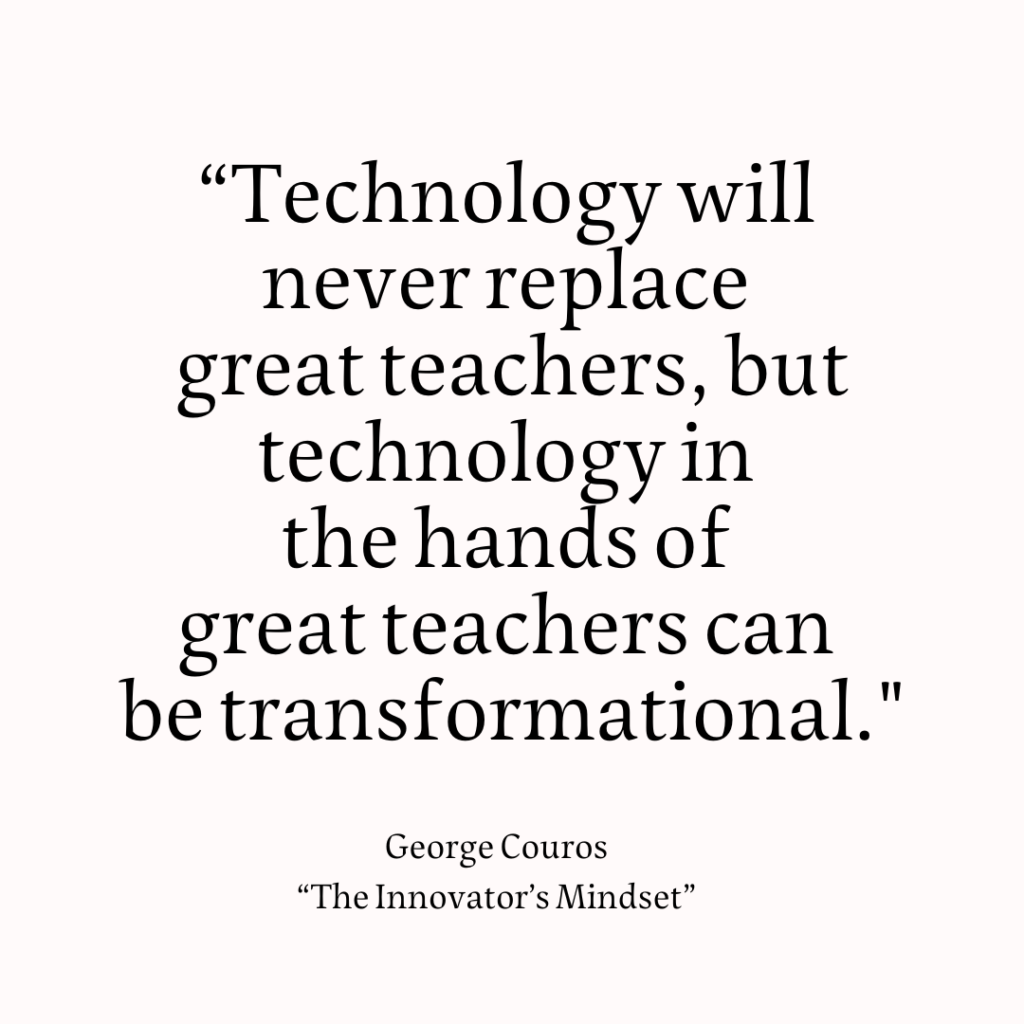Last week, I wrote “How AI Can Save You Time—But Should It? Rethinking Monotony, Creativity, and Motivation,” which is a great title. I am comfortable saying that because I didn’t do it. ChatGPT did. In fact, I shared that at the bottom of the post when I wrote this:
(P.S. I used ChatGPT as a thought partner to provide a title for this post. This is something I have always struggled with, and I also asked it why it chose the title it did. I will share that in a later post 🙂
Today is that later post.
Full disclosure, I love writing posts, but I have always hated writing the titles. When I first wrote Innovator’s Mindset, I swear I had a harder time coming up with the title of the book than I did the pages. There is a balance of wanting a title to be intriguing, while creating an understanding of what is in the book. My brain is wired to focus more on sharing my learning than sales, but I also want the book to sell and reach as many people as possible.
Lately, I have been asking ChatGPT to take my posts and provide me a title, but it wasn’t until last week where I asked the following after receiving some options for the title of the post, when I asked the following question:

I liked the title, but I wanted to know more on why it came up with what it did. Here was the reasoning it shared:
“How AI Can Save You Time—But Should It? Rethinking Monotony, Creativity, and Motivation”
Breakdown & Why It Works:
“How AI Can Save You Time”
This is the hook. People are naturally interested in how AI can make their lives easier, especially educators and professionals looking for efficiency. It taps into a common desire for productivity tips.
It directly references one of the main points in your post—AI being used to handle monotonous or tedious tasks.
“—But Should It?”
This adds tension and curiosity. It hints that there’s more to the story, encouraging readers to question the automatic assumption that AI should take over all tedious tasks.
It invites readers to reflect on their own habits and beliefs, making them want to read further.
“Rethinking Monotony, Creativity, and Motivation”
This phrase highlights the deeper themes of your post.
It shows the post isn’t just about AI tools but about the philosophy and psychology behind how we approach “boring” tasks, creativity, and motivation (tying in concepts like intrinsic motivation, “lawnmower” tasks, and even flow state).
Summary:
The title balances practical appeal (saving time with AI) with intellectual curiosity (should you automate everything?), and it clearly signals to the reader that they’ll be challenged to think differently about how AI, creativity, and motivation intersect.
There was so much behind the writing of a title that I didn’t understand, and possibly did not know if I could do on my own. Suddenly, ChatGPT went from being an assistant to a teacher, perhaps helping me develop skills that will benefit me later.
Recently, I have noticed an influx of posts on social media saying that technology does not improve learning in schools (the irony of posting that on social media, but I digress), but I think there is more context to the conversation. If we are using technology to do the things we used to do in schools, then maybe it doesn’t improve learning. But are we using technology to do things that we used to, or are we leveraging the access we have to all of the information and each other to make us smarter than we were before?
For example, when I turn on a light, I know it works, but I don’t know how. It just works. Nor have I ever really cared to be honest. There are so many technologies in our world that just “are” because we have never known anything else, and we don’t even ask.
On this note, I saw this old video from comedian Nate Bargatze talking about going back in time and knowing all of the things that exist in the future, but having no idea how they work.
What is mind-blowing today is that, yes, we can leverage technology to save us time, but we can also ask the reasoning behind the process.
Technology is neutral, but curiosity is innate only if we are willing to grow it within ourselves. I wrote this in “The Innovator’s Mindset” and still believe it to this day:
Technology alone won’t solve the problems of the world. But if we leverage it through a lens of curiosity, and teach our kids to do the same, we will be able to do better things, faster.
(P.S. I am still working on the ability to write a more intriguing title, but for now, I want to focus more on writing the content. Baby steps are still steps!)
